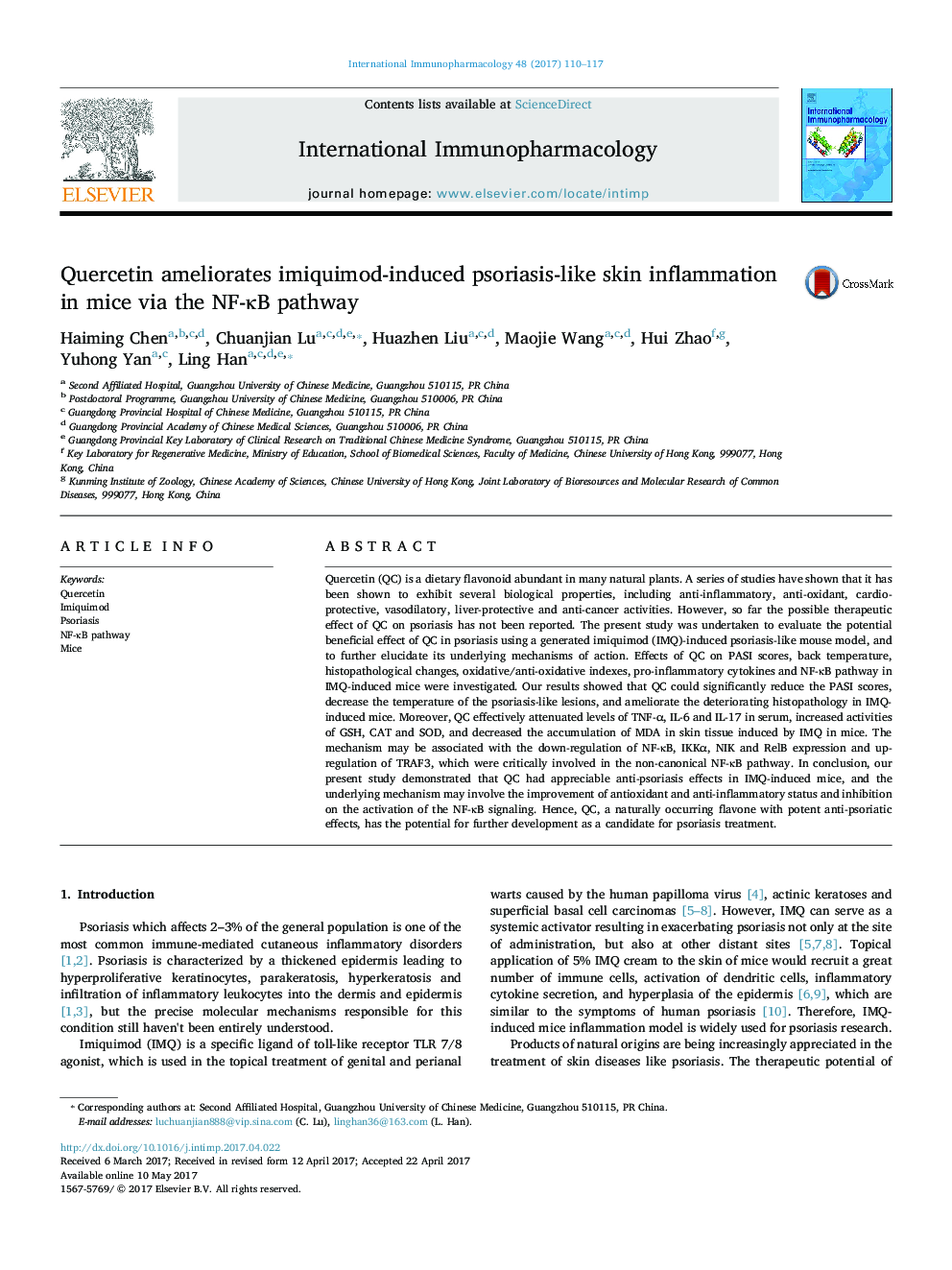| کد مقاله | کد نشریه | سال انتشار | مقاله انگلیسی | نسخه تمام متن |
|---|---|---|---|---|
| 5555405 | 1559742 | 2017 | 8 صفحه PDF | دانلود رایگان |

- Quercetin exhibits appreciable anti-psoriasis effects in IMQ-induced mice.
- Quercetin displays anti-psoriatic effects through the improvement of antioxidant and anti-inflammatory status.
- Quercetin exhibits anti-psoriatic effects by inhibiting the NF-κB pathway.
Quercetin (QC) is a dietary flavonoid abundant in many natural plants. A series of studies have shown that it has been shown to exhibit several biological properties, including anti-inflammatory, anti-oxidant, cardio-protective, vasodilatory, liver-protective and anti-cancer activities. However, so far the possible therapeutic effect of QC on psoriasis has not been reported. The present study was undertaken to evaluate the potential beneficial effect of QC in psoriasis using a generated imiquimod (IMQ)-induced psoriasis-like mouse model, and to further elucidate its underlying mechanisms of action. Effects of QC on PASI scores, back temperature, histopathological changes, oxidative/anti-oxidative indexes, pro-inflammatory cytokines and NF-κB pathway in IMQ-induced mice were investigated. Our results showed that QC could significantly reduce the PASI scores, decrease the temperature of the psoriasis-like lesions, and ameliorate the deteriorating histopathology in IMQ-induced mice. Moreover, QC effectively attenuated levels of TNF-α, IL-6 and IL-17 in serum, increased activities of GSH, CAT and SOD, and decreased the accumulation of MDA in skin tissue induced by IMQ in mice. The mechanism may be associated with the down-regulation of NF-κB, IKKα, NIK and RelB expression and up-regulation of TRAF3, which were critically involved in the non-canonical NF-κB pathway. In conclusion, our present study demonstrated that QC had appreciable anti-psoriasis effects in IMQ-induced mice, and the underlying mechanism may involve the improvement of antioxidant and anti-inflammatory status and inhibition on the activation of the NF-κB signaling. Hence, QC, a naturally occurring flavone with potent anti-psoriatic effects, has the potential for further development as a candidate for psoriasis treatment.
96
Journal: International Immunopharmacology - Volume 48, July 2017, Pages 110-117